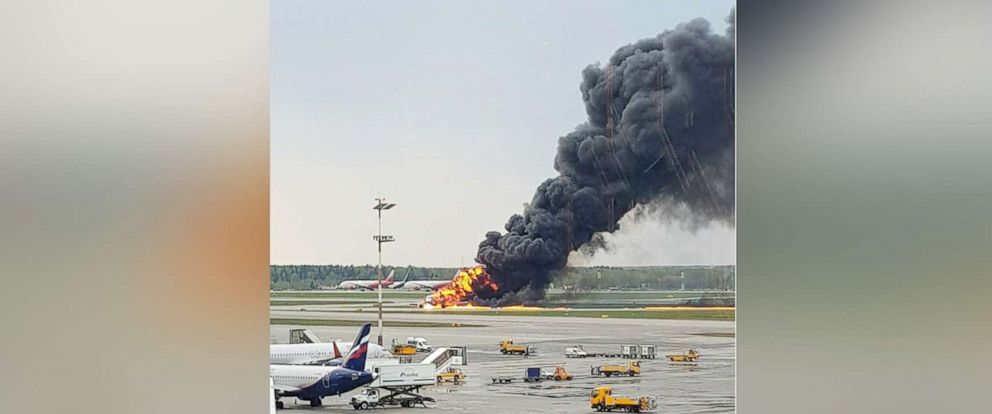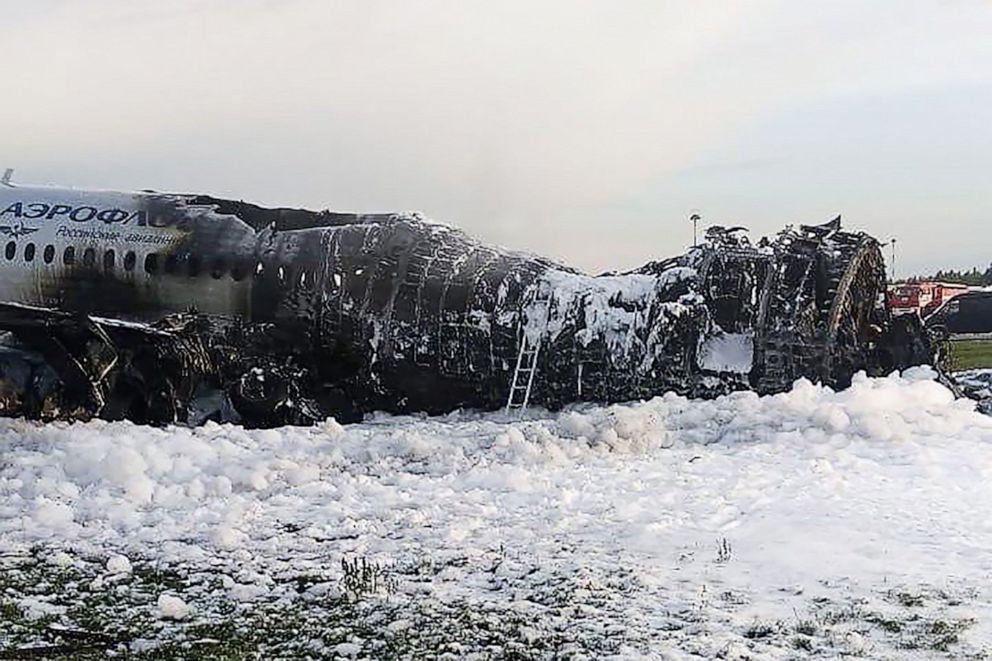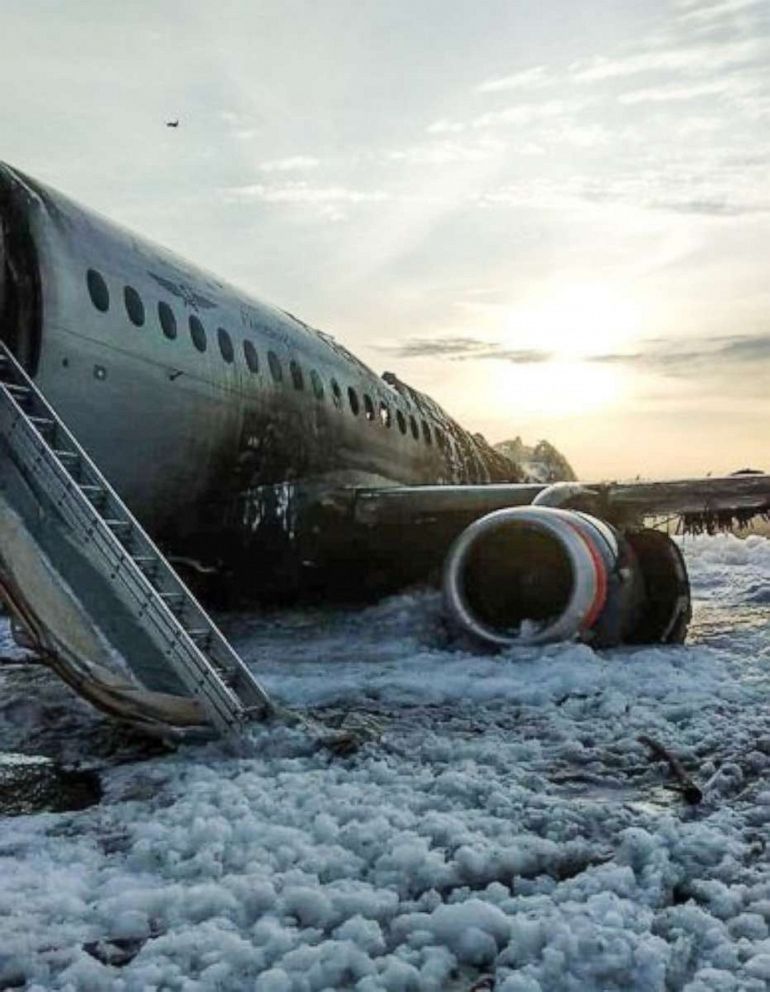Cause of Moscow passenger jet crash that killed 41, including an American, under investigation
Bad weather may have been a factor, authorities said.
MOSCOW -- Russian investigators examining the fiery crash landing of a passenger plane at a Moscow airport that killed 41 people, said on Monday they were focused on pilot error, failings among ground staff, bad weather and technical faults as possible causes.
The Aeroflot flight carrying 78 people was engulfed in flames as it made an emergency landing at Moscow's Sheremetyevo Airport on Sunday, careening down the runway streaming a huge trail of fire.
Authorities said 37 passengers managed to escape down evacuation slides as the aircraft's rear was entirely consumed. But the other 41 passengers, including at least one child, are now believed dead.
Russia’s transportation minister, Yevgeny Dietrich, told reporters on Monday that 41 bodies have been recovered from the charred wreckage that was still laying on the runway.
The State Department confirmed reports that among the dead was one American. Friends named him as Jeremy Brooks, a 22 year-old from New Mexico. According to his former boss, Ivan Valdez, Brooks had traveled to Russia to take on a job as a fishing guide.

"I think it was more of a state of shock for all of us," Valdez told ABC News. "To us Jeremy was invincible."
Russian investigators on Monday pressed on in trying to establish what caused the crash.
Russia’s Investigative Committee, which handles major crimes, said the plane’s flight recorders had been found sent the from analysis.
Russian investigators said they are examining several theories about what led to the disaster, including a mishandling of technical inspections by the ground crew or air traffic controllers, inexperience among the pilots, an aircraft malfunction or poor weather conditions.

The plane, a Russian-built Sukhoi Superjet 100, took off from Moscow bound for the northern city of Murmansk, but had to turn back after running into unspecified "technical difficulties" less than 30 minutes later, with the pilot requesting an emergency landing.
It was not until the plane reached the runway, however, that the fire broke out, the committee said in a statement. CCTV footage broadcast on Russian state television showed the plane's fuselage bouncing off the runaway high into the air before slamming back down, seeming to cause its left engine to explode.
It was unclear what forced the pilots to attempt the emergency landing, but there were a number of reports suggesting the plane ran into bad weather and had been struck by lightning.

A popular Russian social media news messenger, Baza, published an audio interview with who it said was the plane's pilot, Denis Yevdokimov, in which he described losing radio communications and partial autopilot control after being hit by lightning.
"The fire was after landing, as far as I understand. Probably the cause is in that," Yevdokimov said in the audio interview. Yevdokimov did not explain why the plane had landed so hard, saying he had believed it had come in at a usual speed.
The interview could not be authenticated, but a stewardess aboard the flight, Tatiana Kasatkina, also told Russian television the plane had run into hail and lightning. Another passenger, Pyotr Egorov, also said the plane was struck.
"We were flying and lightning struck the plane," Egorov told the tabloid Komsomolskaya Pravda. "The plane turned back, there was a hard landing. We almost lost consciousness from fear. The plane jumped off the runway, like a grasshopper."
The plane’s flight attendants have been praised for helping people escape, guiding them to the evacuation slides despite the terrifying scenes. Russian media has hailed Maksim Moiseyev, a 22 year-old flight attendant, after it was reported he died having stayed aboard fighting to open the rear doors of the plane, trying to get more people out.
Questions also quickly focused on the model of the plane. The Sukhoi Superjet 100, the first new Russian passenger jet developed since the Soviet Union, has a troubled history and has struggled to find buyers outside Russia, amid worries about its reliability and safety record.
In 2017, Russia’s aviation authority ordered inspection of all Superjets in the country over problems with the plane’s horizontal stabilizers. Recently, the largest foreign user of the Superjets, Mexico’s Interjet, reportedly sought to return the planes after it had to ground several.

The Investigative Committee has opened a criminal probe into the crash to examine whether there were any safety violations.
Russian investigators continued to examine the wreckage on Monday; a large crane later lifted the broken shell of the plane to allow the runway to reopen.
Sheremetyevo Airport was largely operating as normal Monday, despite the closure of one runway for most of the day. Dozens of flights were delayed or diverted the night before.
ABC News' Conor Finnegan contributed reporting from the State Department.




